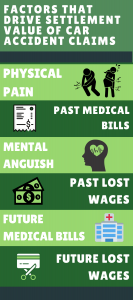Defense lawyers and insurance companies have this irrational fear of an unpaid lien holder coming back and claiming the insurance company must reimburse for the unpaid debt. Sure, some adjusters and lawyers push this issue because they are pathologically difficult. But I also think they have an earnest belief that this could happen and that they will get blamed for it.
This problem has grown especially acute since Medicare came out with new reporting rules in personal injury claims that many insurance companies believe means that the plaintiff must prove the negative that they don’t have Medicare. “You are 32 years old making $75,000 a year? So? Prove to me you are not on Medicare.”
You would think this increasing fear would be tempered by the fact that this doomsday scenario has not come to pass even a handful of times in human history. (Source: I’ve never heard of it happening other than one Medicare case, a thousand years ago, where the plaintiffs’ lawyers really were up to no good.)
So the adjuster-defense lawyer wonder twins concocted a plan to decrease the likelihood of a lien ever coming back on them: having both the plaintiff and the plaintiff’s attorney indemnify them for any lien.
Maryland Ethics Commission: Docket No. 2012-03
So here’s what happened that led to a Maryland State Bar Association ethics opinion. After agreeing to the amount of a car accident settlement, the insurance company demands that the plaintiff’s lawyer and the plaintiff indemnify both the insurance carrier and the defendant from any claim for any of the plaintiff’s medical bills, medical liens, or workers compensation liens related to the car crash. The question posed to the ethics commission is whether this demand violates the Maryland Rules of Professional Conduct. Continue reading












